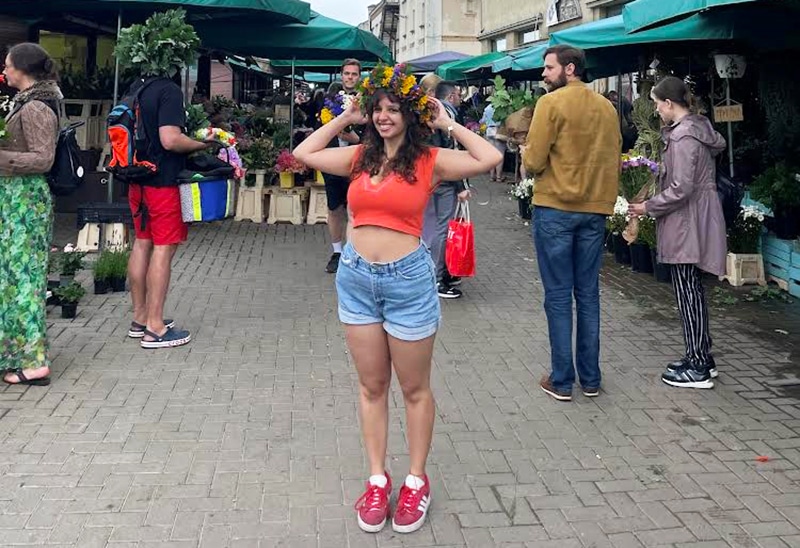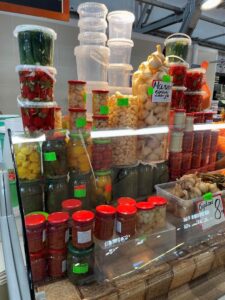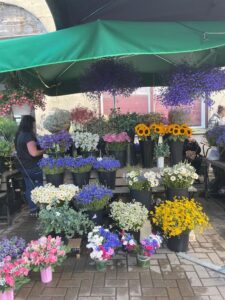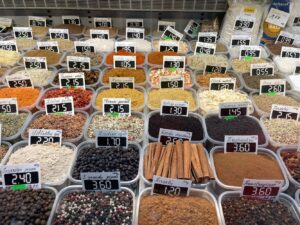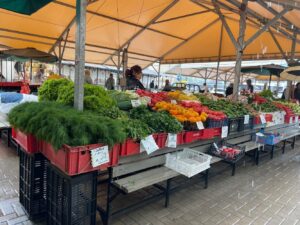Riga is a hidden gem on the edge of Europe. This resource will introduce you to some of the shopping opportunities that students and staff participating on SRAS programs in Riga have found there.
This resource is part of the much larger SRAS Guide to Living in Warsaw.
Central Market: Shopping and Speaking Russian
Review by SRAS Student Marina Garfield
Compared to the whimsical Art Nouveau buildings making up the majority of Riga’s Old Town, the five arched, metallic structures lining the bank of the Daugava River seem out of place. However, a closer look inside these buildings reveals one of Riga’s hidden gems – the Riga Central Market. Riga Central Market (Rīgas Centrāltirgus in Latvian) is one of the biggest markets in Europe and was even listed as a UNESCO World Heritage Site in 1988. The Central Market opened in 1930 when city planners utilized old German Zeppelin hangars to create five indoor pavilions, each designated for a specific food category. In addition to produce, one can find handicrafts, clothes, jewellery, shoes, candles, and other household items in between each food pavilion.
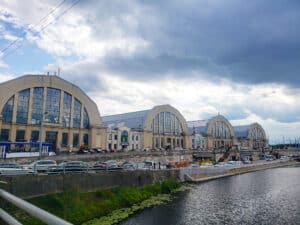
Wandering through the market for the first time, I couldn’t help but feel a little overwhelmed. Despite spending much of my childhood summers wandering through outdoor markets in Brazil, where my family is from, I was unprepared for the lively, bustling energy reverberating through the arched walls of Riga’s Central Market. Almost everything can be found inside the market – from freshly pickled vegetables to imported spices to animal intestines (not my favorite section…) to hand-crafted flower crowns. One can easily circumvent any language barriers by just pointing to what they want, but as a more adventurous shopper, I like to practice my Russian with local vendors.
Due to political tensions with Russia, some Latvians have begun refusing to speak Russian, conversing in either Latvian or English instead. To avoid unwanted misunderstandings, it is advisable to ask strangers “Which language are you most comfortable speaking in?” before jumping into a conversation. However, vendors in the Central Market belong to an older generation and are generally more willing to speak Russian. This makes the Central Market a must-see for Russian language learners like myself, who are itching to put their new vocabulary to use.
Even still, buying food in a language I only began studying recently comes with its awkward moments. For example, I once forgot the word for beef and accidentally asked for “pelmeni with cow” instead. Another time, a vendor unexpectedly corrected my grammar when I was trying to order a few homemade pickles. Speaking Russian with locals is tougher than with my teachers, who correct my pronunciation and understand me despite my grammar mistakes. In the Central Market, nobody knows that I am a student who sometimes forgets her case endings and will pantomime words she doesn’t know. I am treated just like any other Russian speaker. Interactions like the ones I mentioned above may seem discouraging, and honestly, I have been frustrated that I can’t seem to ace what appear to be basic transactions. However, I quickly learned that laughter is the best remedy for these frustrations, and, at the end of the day, I do succeed in buying the products I want.
Speaking Russian in the Central Market comes with unexpected perks, too. During the summer, vendors inflate the price of their goods to profit from tourists; speaking English loudly is an easy way to ensure that your purchases will be a few euros more. I once saw the price of a hat suddenly drop by 20 euros because the English-speaking buyer switched to Russian halfway through his purchase! Furthermore, I have found sometimes honestly is the best policy: there is no harm in admitting that I am a student who has recently begun learning Russian. Many Russian-speaking locals are sympathetic to language learners, complementing their speaking abilities and encouraging them to continue studying. Sometimes a “you speak so well!” from a stranger is the perfect confidence boost after a tough day of making grammar mistakes in class.
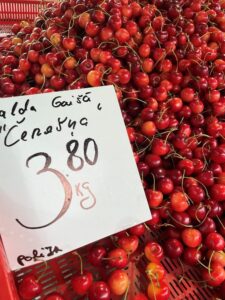
Riga’s market culture is unlike anything I have experienced in the United States – I can’t exactly haggle for a bag of cherries with a cashier at an American supermarket! Additionally, with the market sporting over 3,000 stands, it is practically impossible to visit every booth and try every product. Even though I have sampled Jāņu siers (a traditional Latvian cheese), photographed vibrant vegetables, held my breath as I sped through the stinky fish section, and practiced speaking Russian dozens of times, I have only experienced the tip of the Riga Central Market iceberg. Nevertheless, my visits to the market have taught me invaluable lessons on humility, vulnerability, and learning to laugh at my mistakes. Perhaps my best deal at the Riga Central Market was not the 3-euro kilo of fresh strawberries purchased from a friendly бабушка or the 5-euro Uzbek samsas I scarfed down after a long day of school, but rather the sense of pride and achievement in my growth over these past two years, when I first began my language-learning journey.
You Might Also Like

SRAS Program Travel from Riga: Day Trip to Jurmala
Jurmala is a resort town on the Baltic Sea coast with a long history. It’s known for its traditional architecture, cultural institutions, and, of course, its surprisingly warm beaches. SRAS students in Riga regularly travel to Jurmala, allowing them to see both life outside the capital, but also to see how many Latvians relax on […]
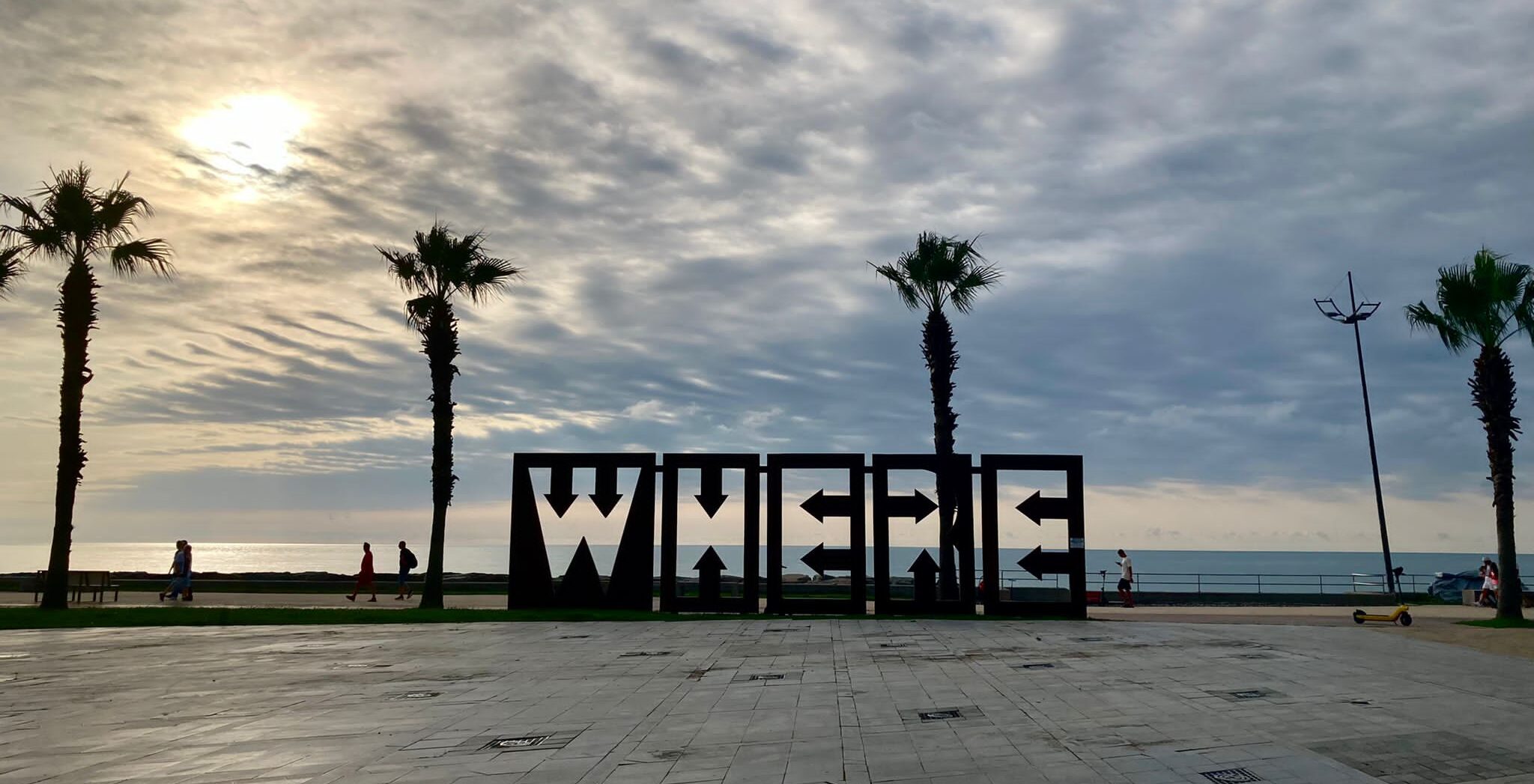
Packing List for Study Abroad
A semester or year stay abroad requires considerable planning. You will need to consider the season and location as well as what you need to bring and what you should find abroad. If you will be spending winter months in most SRAS locations, luggage can quite easily become unwieldy, which can mean airline charges for […]
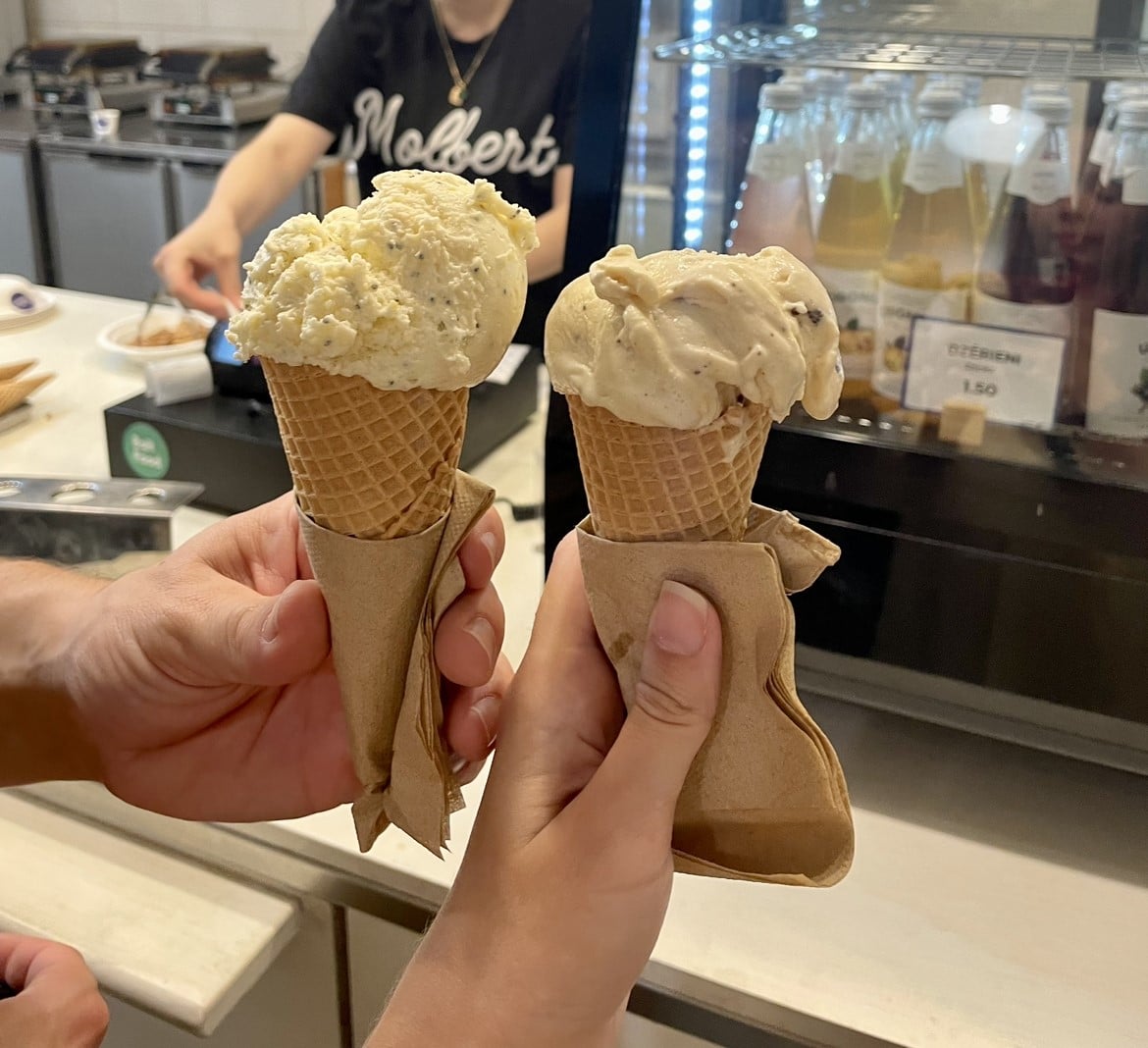
Coffee and Desserts in Riga
Like any good European capital, Riga’s historic streets bustle with people and are lined with quaint cafes, coffee shops, and bakeries offering a place to sit, relax, and enjoy the sweeter things in life. Below are some options found by SRAS students in Riga that they would like to share with you. This guide is […]
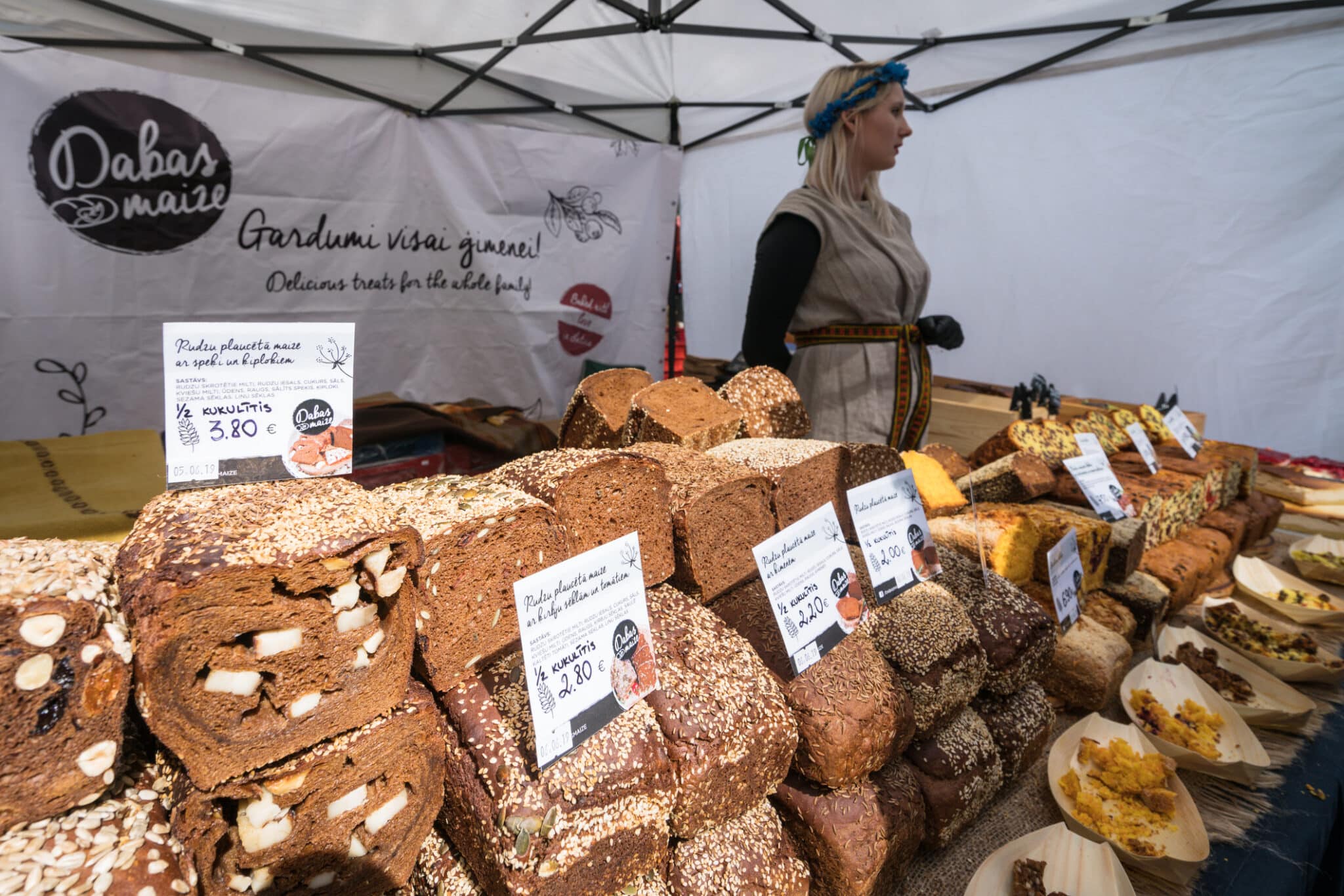
Latvian and Regional Food on a Student Budget in Riga
One of the most exciting things about travel is the ability to try new combinations of flavors and textures! Local food can not only delight your senses, but also introduce you to important parts of the local culture and history. Latvia can, in addition to introducing you to Latvian food, also offer an array of […]
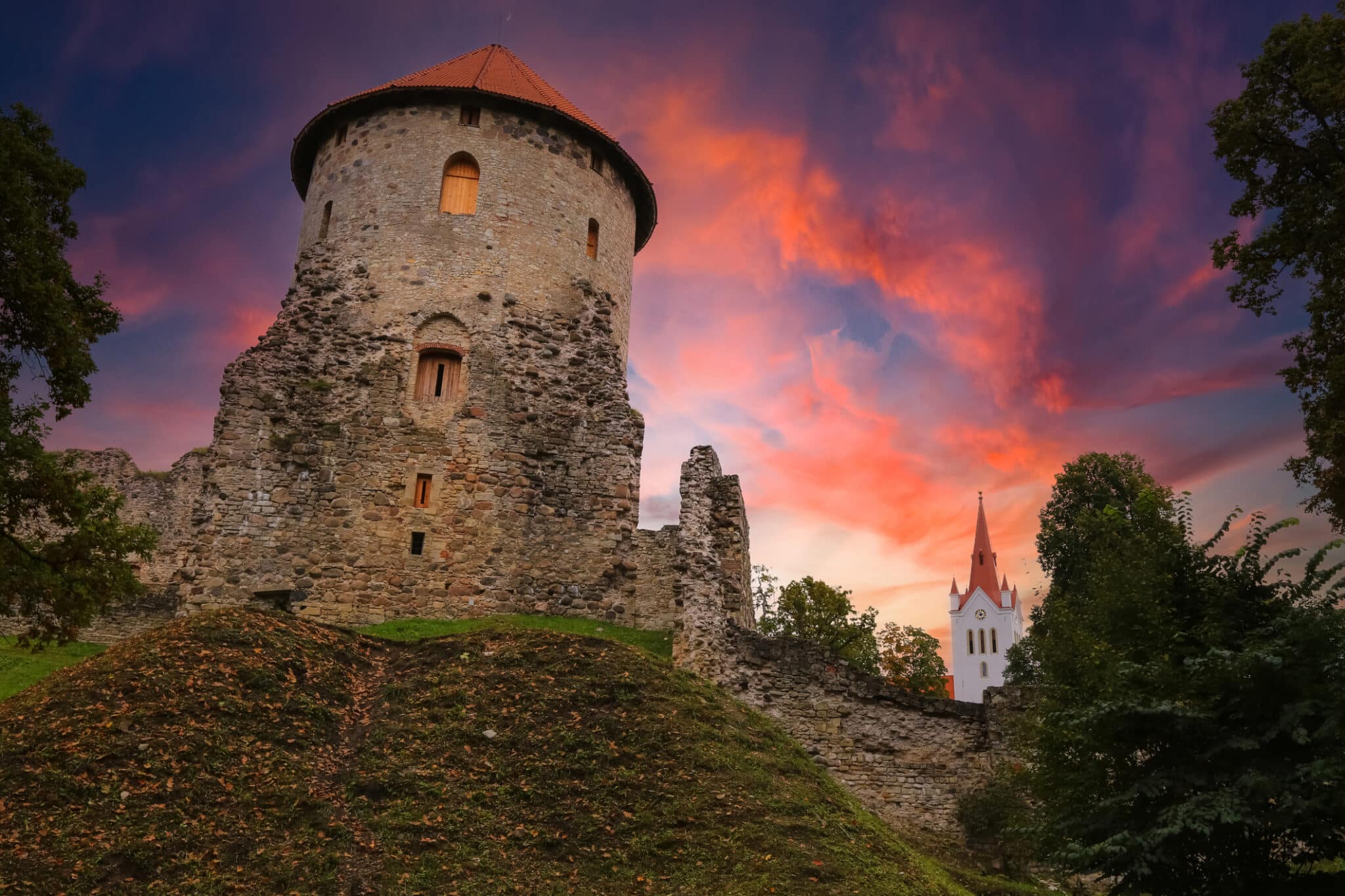
Five Great Day Trips from Riga, Latvia: Hiking, Castles, Caves, and More
Latvia is small country with a long history. Just outside the Riga lie a number of great sites to see – from sandy beaches to medieval castles and from majestic national parks to places literally straight out of fairy tales. See below for a small selection to get you started! Cesis: A Medieval Town […]

